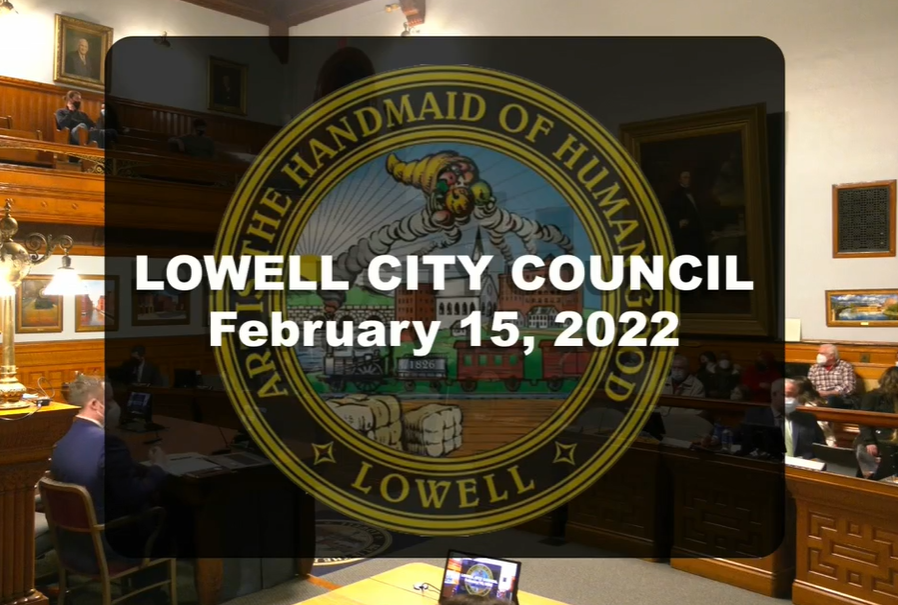
1. CPA Fund Votes
The first slate of projects recommended by the Community Preservation Committee (CPC) came before the council for approval. There were eleven projects on the agenda, but two projects (Rollie’s Farm and stained glass window repair at City Hall) require bonding and were moved to March 1st for a vote. The remaining nine projects were “bundled” for the purpose of the vote and the entire slate was unanimously approved:
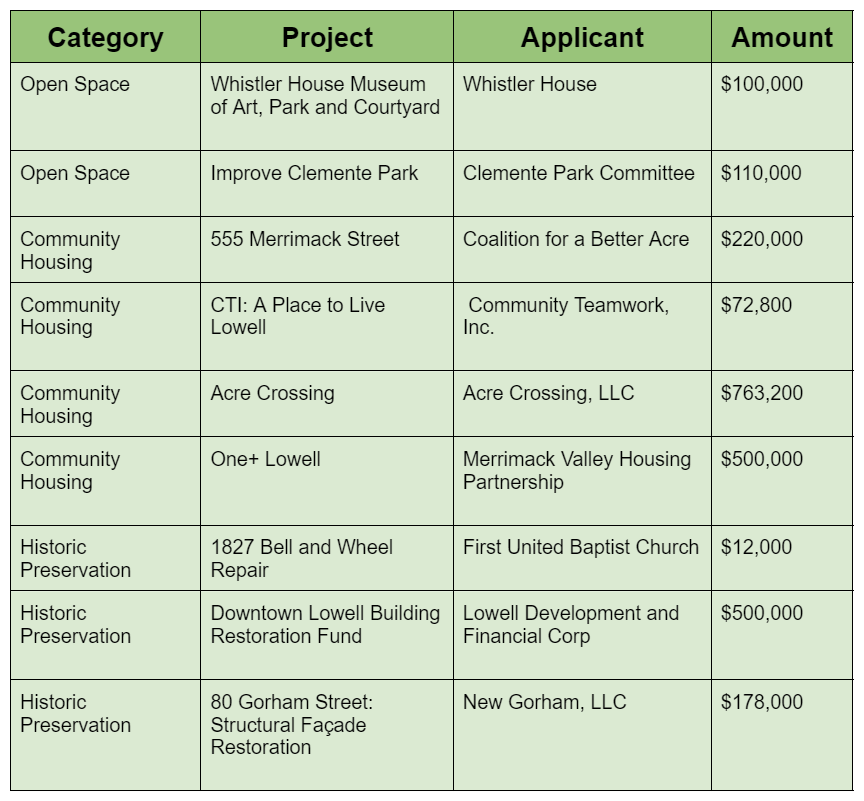
Why it matters: In 2019 Lowell voters joined the list of Massachusetts communities that have adopted the Community Preservation Act (CPA). The CPA is a tool that helps communities preserve open space and historic sites, create affordable housing, and develop outdoor recreational facilities. It’s great to see projects getting off the ground that would otherwise be left out of the standard budget process.
Of note, Councilors Drinkwater and Mercier emphasized the importance of CPA funds in creating housing – which segues nicely into the next topic…
2. New MBTA Zoning Requirements
An informational report was provided on new MBTA zoning requirements. The City of Lowell is an “MBTA Community” because of the existence of the commuter rail located at the Gallagher Terminal. Enacted as part of the economic development bill in January 2021, new Section 3A of M.G.L. c. 40A (the Zoning Act) requires that an MBTA community shall have at least one zoning district of reasonable size in which multi-family housing is permitted as of right. Under the new legislation, Lowell is not currently compliant.
An MBTA community that does not comply with Section 3A is not eligible for funding from: the Housing Choice Initiative, the Local Capital Projects Fund, or the MassWorks Infrastructure Program.
The DHCD is collecting public comment on the Draft Guidelines. In the meantime, Lowell can remain in compliance by submitting a MBTA Community Information Form by May 2, 2022 and holding briefing of the City Council by the same date.
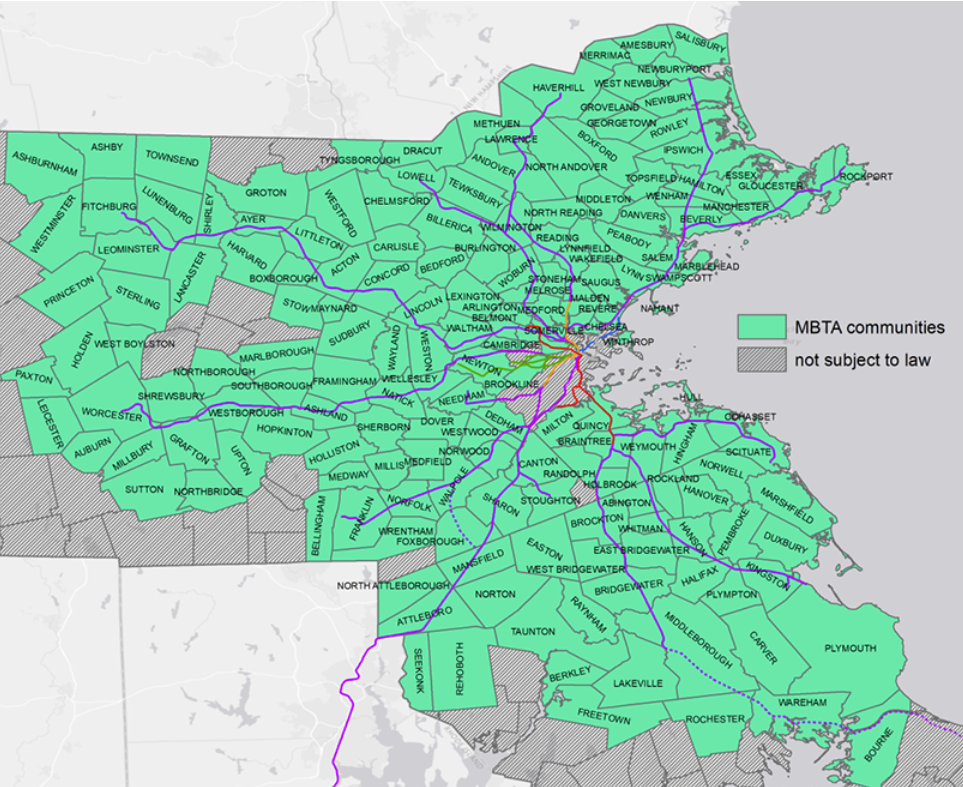
Why it matters: The need for new housing is significant. Every year we fall far short of the new homes needed to just keep up with population growth – thus, a “housing crisis.”
The new law does not require that we actually build housing – but rather, forces us to permit multi-family units, as of right, in the prescribed zone. A sure-fire way to address the housing crisis is to make it easier to build housing. Our current zoning laws often make this proposition illegal.
The argument against this law is that it imposes state-set requirements that override local decision-making. However, “crisis” means “crisis” and local governments have largely proven time and again that they are unable or unwilling to create housing (notable exception and shout-out to Salem, MA)(I know, “Lowell isn’t Salem”). Zoning is not merely local, it’s hyper-local. The result is often a political climate, driven by politically active homeowners, that suppresses housing supply.
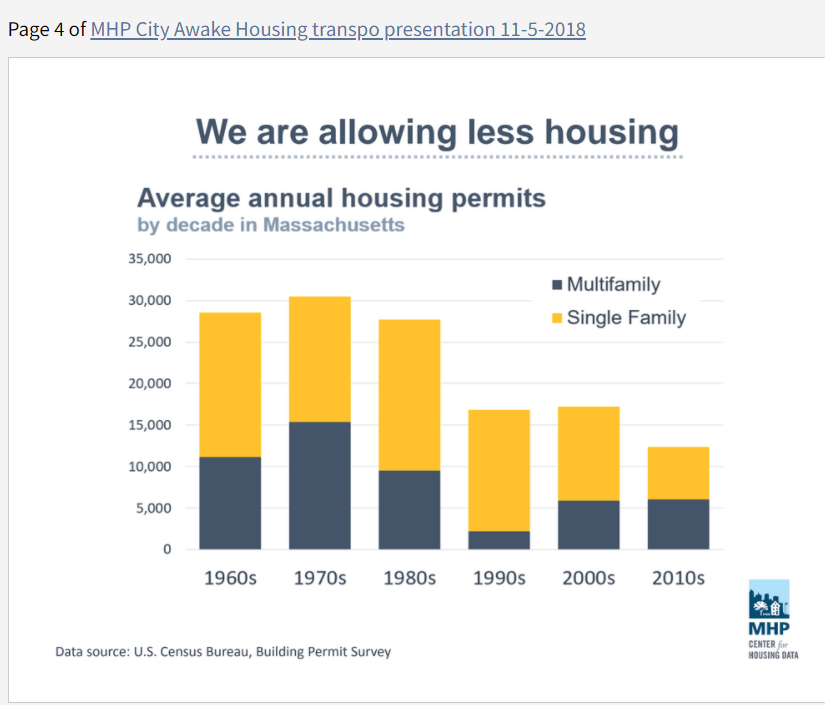
This dynamic can be remedied, in part, by scaling up the process to move some decision-making authority away from the neighborhood level and toward the state level. Last night, Christine McCall of DPD said it best: “zoning can be a difficult conversation.” The shift toward state mandates in this area will force Lowell to get serious about this conversation sooner, rather than later.
3. New Master Plan in the Works
A report was provided advising that the Department of Planning and Development (DPD) has finalized the drafting a RFP to “invite qualified consultants to submit proposals to develop Lowell’s citywide comprehensive plan.” The project kick-off date is expected to begin in the spring of 2022.
Why it matters: The city’s Master Plan is an officially adopted public document that establishes long-term policies for the City. The current Plan started to come together in 2011 and was published and adopted in 2013. As we are nearing the 10 year mark, an update is due.
As councils and managers change, we tend to lose sight of the Plan. As per the current Plan, we were supposed to “identify metrics that can be used to motivate implementation of the plan, track progress, document success, identify areas for further or corrective action and communicate this information to internal and external audiences.”
I do not believe that we met this goal. Councilor Yem asked whether a review of the current plan would be undertaken. Christine McCall from DPD advised that the current Plan would be reviewed to asses goals met and progress made. However, we should not have to wait a decade for this information. Citizens should get regular updates on Plan progress and should have some means of putting council and City actions into the context of the Plan.
For example:
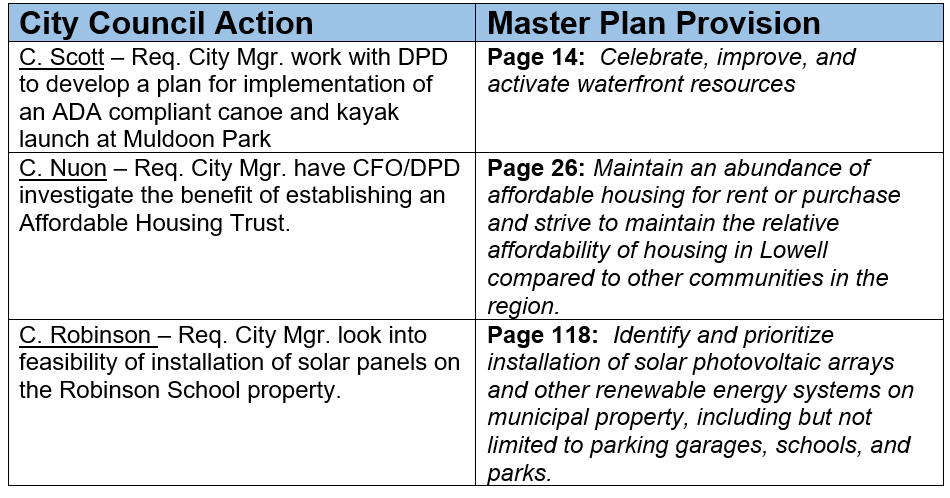
Hopefully the next plan will call for something along the lines of a dedicated Master Plan Committee to monitor our progress on regular basis and keep the Plan at the forefront of our decision making progress.
4. Chapter 90 Funds
Councilor Gitschier brought forth a motion requesting that the city manager: Send A Letter To The State Delegation And The Governor Respectfully Requesting An Increase In The State Chapter 90 Funding From 200 Million To 300 Million State Wide. After discussion, the request is likely to be amended to $600 million or more.
Why it matters: How do we pay for all of that pothole repair? The purpose of the Chapter 90 Program is to provide municipalities with an annual funding source for improvements to and investments in local transportation networks. Every municipality in the Commonwealth is allocated a portion of total program dollars – based on a set formula: Currently, the fund sits at $200 million. Lowell’s sliver is as follows:


The fund as not been increased since 2012 and some pressure is needed to make sure we can properly maintain our roads.
5. New Manager “Search”
Mayor Chau filed a motion requesting that the City Council Refer To Auditor/Clerk Oversight And Personnel SC To Report And Establish Procedure And Timeline For Search And Appointment Of A New City Manager. The matter was referred but not before Councilor Mercier stated that the process to follow would likely be “B.S.” – suggesting that there is no chance that the council would undertake a good-faith “nationwide search” (or give serious consideration to anyone not named Tom Golden). I disagree that there is no benefit to establishing a search process and performing due diligence on candidates – but it’s hard to fault her line of thinking.

Will the council send a letter to the state delegation and governor requesting an increase in the gas tax cause that’s how Chapter 90 gets funded. I strongly doubt it. The cost to maintain our streets far exceeds what we pay into it.
C. Gitschier had a nice motion asking for a grass strip to be put in between the curb and sidewalk on Highland Ave. This might have an added upfront cost but would reduce the amount of pavement that would need maintenance going forward and should be the default on all future street repaving and sidewalk projects. It also enables tree lined streets which increases property values and causes reduced driving speeds.
As for better funding our transportation infrastructure and managing traffic I’d like to see “congestion pricing” legalized on local roads. It’s premised on being able to put a price on driving across our bridges and heavily travelled roads. The technology is already being used highways. Buses would be exempt and you could reduce the fee for low-income drivers if need be.
Adjusting the fee at different times of day would help manage traffic. Higher fees at rush hour means less congestion. The fee could be zero in the middle of the night. Mandating that the revenue generated can’t be put into the general fund but has to be spent on Lowell transportation infrastructure and maintenance is preferable to paying into the state gas tax – who knows where that money goes?!
Congestion pricing is very similar to paying into the CPA fund. People don’t mind a tax if they can see the money being spent locally. It would for sure reduce and possibly eliminate general fund transportation expenditures – great for Lowell taxpayers! Having non-Lowellian drivers, a BIG part of congestion, helping to pay for our streets and sidewalks would be a game changer.
Perhaps another letter to the delegation and governor is in order.